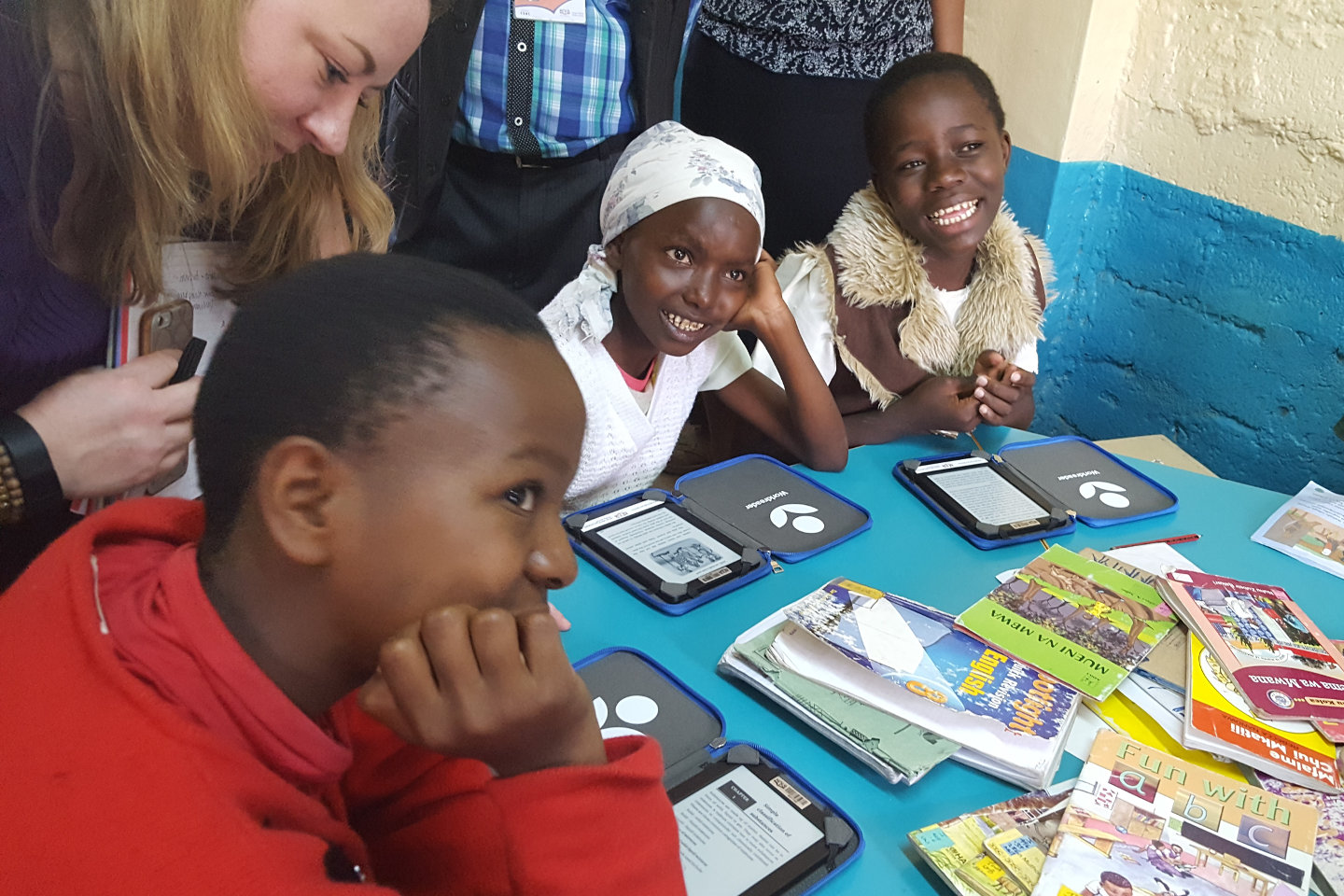The Technology and Social Change Group’s Chris Rothschild and Melody Clark recently visited Kenya to work with national and international organizations to develop training for public librarians who are helping people navigate an abrupt onslaught of information via mobile devices, internet and applications.
Rothschild and Clark, both researchers at TASCHA and UW alumni (2009 and 2010, respectively), spent a full week visiting public libraries, talking with patrons and staff, and meeting with representatives of the Kenya National Library Services and EIFL, an international nonprofit that works with libraries around the world.
“We had much to digest and learned a great amount about how we’ll move forward in creating relevant and useful mobile information literacy materials and training,” Clark wrote in a blog post about the trip.
Some of Clark’s takeaways from the trip:
- Kenya’s public libraries are heavily used and thriving: Libraries were packed and humming with activity, nearly everywhere Rothschild and Clark went. Patrons of all ages were reading print books, using new eReaders courtesy of a partnership with WorldReader, using computers and the internet, and seeking assistance from library staff.
- There are many initiatives around information and communication technology: They noted a lot of investments being made in access to technology and ICT skills. For example, Mozilla Clubs are popping up around the country, and the Mozilla Foundation has launched its Digital Skills Observatory project, which provides smartphone skills training and explores how first-time smartphone owners use their phones. Intel, Microsoft, Goethe-Institut, and WorldReader have all made investments in providing technology training through public libraries in Kenya.
- Access to smartphones and mobile internet may not bear out the statistics: While recent statistics suggest that Kenya enjoys a 90 percent mobile penetration rate and a 44 percent smartphone penetration rate, actual smartphone ownership and use in Kenya seems much more nuanced. Many professionals in urban areas seem to have multiple smartphones and use them for different things, and individuals may have multiple SIM cards. People may also buy cheaper devices and carry them around to take pictures, but that doesn’t necessarily mean they are using the internet on them.
- Social learning with active participation is important for any training: They heard from many people that Kenyans are very social and value learning from each other. They witnessed this first-hand during their library visits as they saw patrons helping others at the computers, with eReaders, and even reading print materials together.
- Local content is needed and vital to success of any program: They heard repeatedly from stakeholders, library staff, and others working on similar initiatives that any curriculum and training material should highlight content that is useful and relevant for the users. By using local content that is of interest and directly applicable to how people do and will use their mobile phones, interest and engagement in training programs will increase.
- Facebook isn’t the only main player: While Facebook was THE thing in Myanmar when TASCHA developed its curriculum there, other applications in addition to Facebook are widely used in Kenya, such as WhatsApp and to a lesser extent, Twitter.
TASCHA did similar work to promote mobile information literacy in Myanmar in 2016. As millions of people come online across the globe through mobile devices, they face challenges finding and evaluating the quality and credibility of information obtained online, understanding how to create and share online information effectively, and participating safely and securely. Mobile information literacy is vital for those who have leapfrogged from traditional media to digital devices that provide instant access to information.
“We are now busy working on developing and designing mobile information literacy curriculum for Kenya public libraries, with plans to test the curriculum during a pilot training with about a dozen library staff later this spring,” wrote Clark, a graduate of the iSchool's Master of Library and Information Science program. The final curriculum is expected later in 2017.
